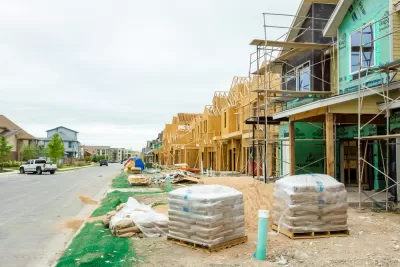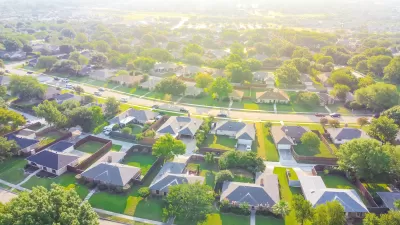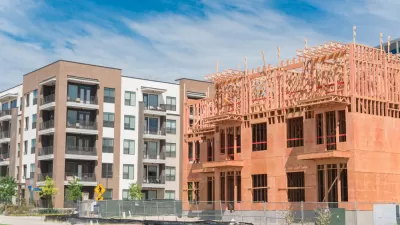The high cost of housing in the United States can be attributed in part to the high costs, regulatory and otherwise, of building new housing.

“The main factor driving the cost of all housing is the cost of building new housing,” writes Michael Andersen, arguing that “If we want our cities’ older homes to cost less, either to buy or rent, we need it to be less expensive to create a new home.” As Andersen explains, “in the end, pricing mostly comes down to cost. The price of existing homes is held down (or driven up), more than anything else, by the cost factors of creating new housing.”
If all of us deserve a home, and I happen to agree with the 1948 United Nations General Assembly that we all do, there’s no alternative to taxing and spending. And if we also want to avoid housing shortages like today’s, there’s also no alternative to making homes cost less to build.
According to Andersen, part of the problem stems from unnecessary legal requirements. Some mandatory items, like windows, indoor plumbing, and safe electrical cables, are “well worth their costs.” But “when our governments require homes to be a certain level of ‘nice’ to be allowed to exist, they’re making assumptions that don’t apply to everyone.” Loosening some of these requirements could reduce the cost of building new homes and, thus, the cost of housing. The source article links to Andersen’s more detailed proposals in Willamette Week and his discussion of the issue on the Week’s podcast.
FULL STORY: The Price of Old Homes Depends on the Cost of Building New Homes

Maui's Vacation Rental Debate Turns Ugly
Verbal attacks, misinformation campaigns and fistfights plague a high-stakes debate to convert thousands of vacation rentals into long-term housing.

Planetizen Federal Action Tracker
A weekly monitor of how Trump’s orders and actions are impacting planners and planning in America.

Chicago’s Ghost Rails
Just beneath the surface of the modern city lie the remnants of its expansive early 20th-century streetcar system.

Bend, Oregon Zoning Reforms Prioritize Small-Scale Housing
The city altered its zoning code to allow multi-family housing and eliminated parking mandates citywide.

Amtrak Cutting Jobs, Funding to High-Speed Rail
The agency plans to cut 10 percent of its workforce and has confirmed it will not fund new high-speed rail projects.

LA Denies Basic Services to Unhoused Residents
The city has repeatedly failed to respond to requests for trash pickup at encampment sites, and eliminated a program that provided mobile showers and toilets.
Urban Design for Planners 1: Software Tools
This six-course series explores essential urban design concepts using open source software and equips planners with the tools they need to participate fully in the urban design process.
Planning for Universal Design
Learn the tools for implementing Universal Design in planning regulations.
planning NEXT
Appalachian Highlands Housing Partners
Mpact (founded as Rail~Volution)
City of Camden Redevelopment Agency
City of Astoria
City of Portland
City of Laramie





























